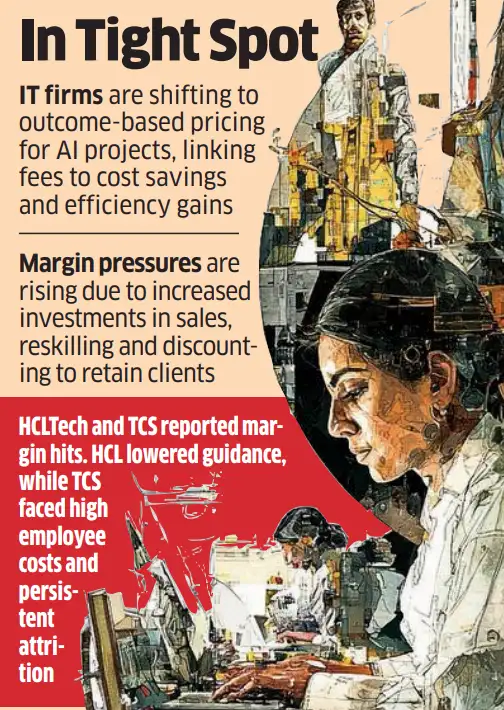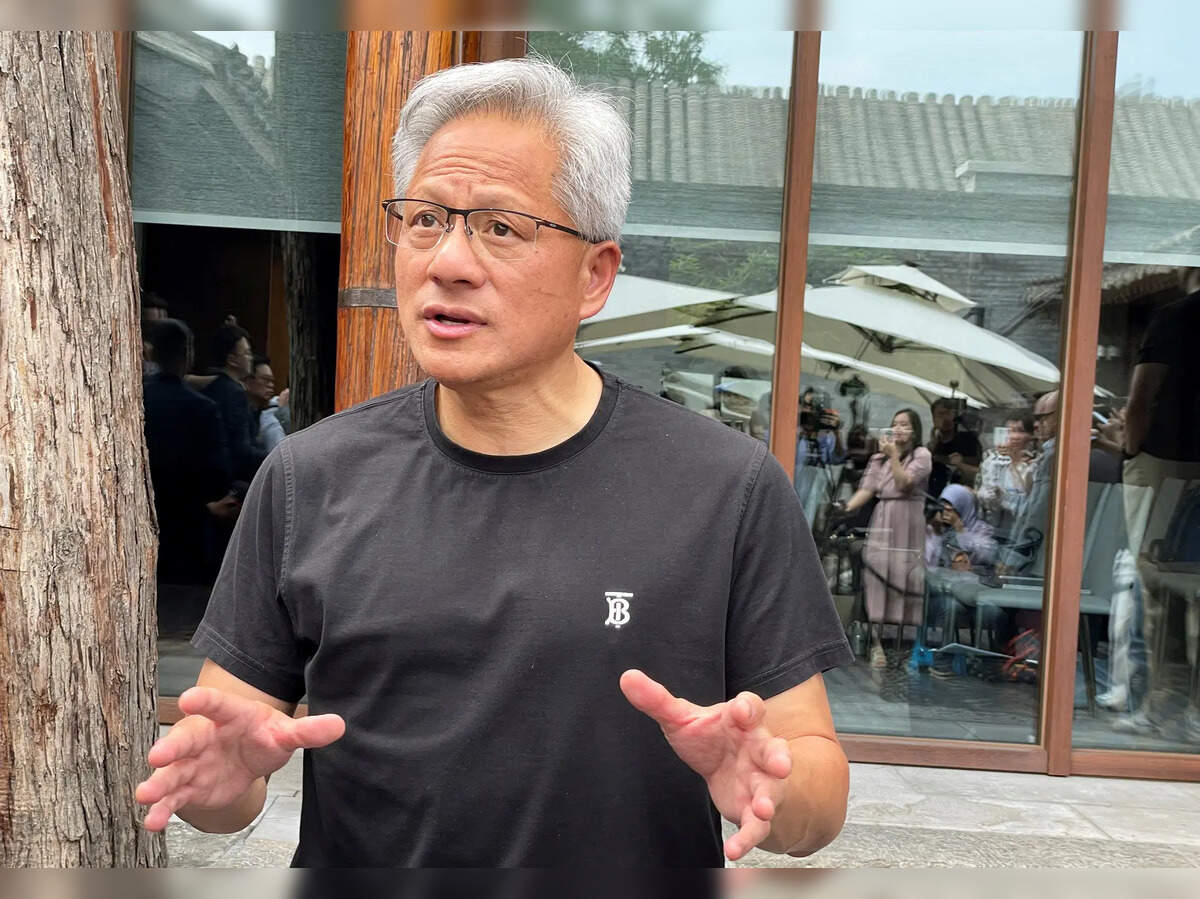The fiscal first quarter showed companies are stretching all internal levers aggressively to protect profits amid slowing large-deal momentum. This includes lowering sales and admin costs, delaying pay hikes, and rejigging bench policies.
Analysts expect the trend to continue through the fiscal second half as the IT sector is turning into a “negotiator’s market”. While revenues may see an uptick due to pent-up demand created in the last few quarters, margins will remain stretched and firms will focus on operational excellence, analysts said.
According to Nitin Bhatt, technology sector leader at EY India, margin pressures will worsen with investments in “new sales and go-to-market motions, solution-build and reskilling, large deal conversions, and in some cases, providing discounts to protect the current estate.”
 ETtech
ETtech“IT firms are shifting from time & material to outcome-based pricing for AI projects, linking fees to business impact like cost savings or efficiency gains. This may pressure short-term margins but promotes high-value, long-term engagements,” he said.
For instance, HCLTech’s management highlighted that generative AI delivers substantial efficiency gains in software development (25–30%) and business processes (up to 50%), with contact centres seeing up to 75% headcount reduction by implementing conversational AI, brokerage firm Emkay Research noted in a report.
HCL, for the first time in several quarters, lowered its margin guidance to 17%-18% from 18%-19%. “Margin guidance came in as a negative surprise to the Street since HCLT has been keeping margin guidance intact despite changes in revenue target for the past few quarters,” Elara Capital said in a report.
In the case of Tata Consultancy Services (TCS), increase in employee costs because of hiring, excess capacity, and mid-quarter benefits led to an 80 basis points impact during Q1FY26. The company’s employee cost reached an all-time high, now constituting 59.45% of revenue, even as attrition remains high at 13.8%, data showed.
“FY26 is margin protection and margin expansion year,” said Gaurav Vasu, founder and CEO of data and research platform UnearthInsight. “Growth, especially in the US and core verticals, is weak across the board. Large deal wins are not yet translating to revenue acceleration, so lead indicators (pipeline, bookings) matter—but execution and conversion will be critical in H2 FY26.”
Vasu added that top-tier IT firms are adopting tight controls—reducing variable compensation, deferring salary hikes, and tightly managing bench policies.
“H2 FY26 for top Indian IT firms will likely see gradual but not dramatic growth improvement, driven by geopolitical risks, US tariff stance and slowing global economy which delays deal conversions and recovery in client spend,” said UnearthInsight’s Vasu, stating a 3-5% revenue growth guidance for FY26.
Stock research firm Incred Equities said clients’ procrastination over long-term decisions has increased.
“…deal conversations are underway but advisory-led proposals (RFPs) with long-term road-maps have complex constructs and are elongating the decision timeframe,” InCred said in a report. It added that although the pipeline opportunity could be at its peak currently given the delays, it is a highly negotiator’s market where companies need to be agile, flexible and accommodative.
“Clients continue to seek ‘doing more for less’ i.e. to optimise legacy projects to fund small-ticket AI-led ones. This, in turn, is driving vendor consolidation, driving the competitive intensity higher, creating staffing challenges, and pressurising the margin profile of deals. Hence, building margin expansion for FY26F could be aggressive,” said InCred Equities.



